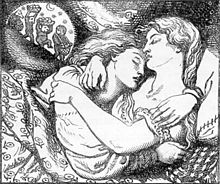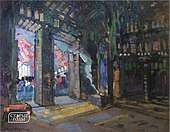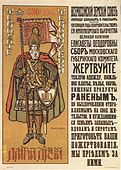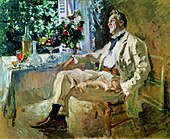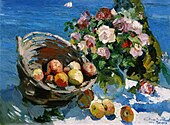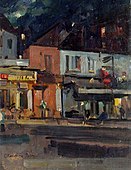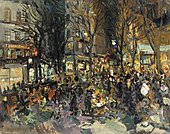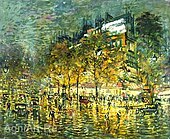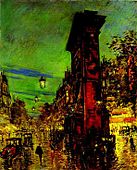Dear Zazie, Hey thanks for stopping by! Loved your note. Here is today’s Lovers’ Chronicle from Mac Tag dedicated to his muse. Who is the other side of you? Rhett
The Lovers’ Chronicle
Dear Muse,
© 2020 mac tag/cowboy coleridge all rights reserved
whisper, so you can hear
troubles passed
with patience
seekin’ consolation
for havin’ been lost
left behind
disconsolate,
forever desire
yet visions of you
want, even need
to be, and to have
to get beyond
solitude
remember,
penance
must be paid
self imposed
not to be another’s
can your want
make another
other side of me
the sorrow felt
will not allow
nor disappear
nor be forgiven
for the other side of you
destiny designed
by fixed devotions
allowed to come with you
to catch as cannot
as your other side
© copyright 2018 mac tag/cowboy coleridge all rights reserved
The muses took me on a wild ride with this one:
Other Side Of You
Whisper so, can you hear
You must hear me call you,
The other side of you
The troubles suffered,
Until now never-endin’,
Passed with patience,
Hopin’ to be consoled
Of havin’ been lost
But now, finally found
Must try to remove desperate
And disconsolate, forever desire
The visions of you
Want, even need
To be, and to have,
The other side of you
Have not begun to seek,
Nor go beyond solitude,
To become a legend of the fall
Remember, so many storms
And penance must be paid
You can say that I have died,
Kept in self imposed prison
Not to be another’s,
Your want made another
Other side of me
Yes harsh fortunes have always been
Constant moods, still emergin’
And foretold, not sold
Buried here
The sorrow felt
Will not allow
Nor disappear nor be forgiven
For the other side of you
Destinies designed by fixed devotions
Eternally earned by mixed emotions
Allowed to come with you
To be the other side of you
(if over time prayers permit)
To catch as cannot
As your other side
Which I do not lie
As your other side,
Or from pride
Penetrate feelin’s
That, for you so kind,
Shall grant and allow
Promise the price
That I have paid
If this will not do, only say
To want to finish misery,
If not to be your other side,
Refer to our learnin’ of the verse
Or for that matter to boil
Down the point brought to you
You are the other side of me
I am the other side of you
© copyright 2012 mac tag/Cowboy Coleridge all rights reserved
The Song of the Day is “The Other Side Of You” by American Bang. Disclaimer: No coyright infringement intended. I do not own the rights to the SOD.
| Pierre Puvis de Chavannes | |
|---|---|

Pierre-Cécile Puvis de Chavannes, c. 1880, after a negative by Étienne Carjat
|
|
Today is the birthday of Pierre Puvis de Chavannes (Lyon, Rhône 14 December 1824 – 24 October 1898 Paris); painter. Perhaps best known for his mural painting, he came to be known as ‘the painter for France.’ He became the co-founder and president of the Société Nationale des Beaux-Arts, and his work influenced many other artists, notably Robert Genin. Puvis de Chavannes was a prominent painter in the early Third Republic. Émile Zola described his work as “an art made of reason, passion, and will”.
In Montmartre, he had an affair with one of his models, Suzanne Valadon, who would become one of the leading artists of the day as well as the mother, teacher, and mentor of Maurice Utrillo.
Gallery
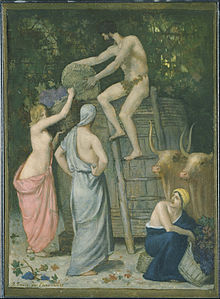

jeunes filles au bord de la mer



-

Hope, 1872, Walters Art Museum
-

Musée de Picardie. cliché H.Maertens (1863)
-

The Shepherd’s Song (1891)
-

The White Rocks (1869–1872)
-

The Dream (1883)
(Walters Art Museum) -

Ludus Pro Patria (1883)
(Walters Art Museum) -
The Poor Fisherman
| Paul Éluard | |
|---|---|
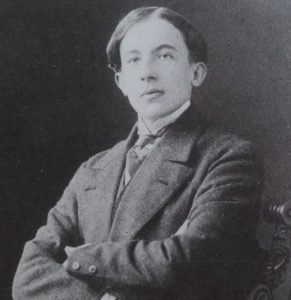 |
|
And today is the birthday of Paul Éluard (born Eugène Émile Paul Grindel; Saint-Denis 14 December 1895 – 18 November 1952 Charenton-le-Pont); poet and one of the founders of the surrealist movement.
At the age of 16, he contracted tuberculosis and remained hospitalized until April 1914 in the Clavadel sanatorium near Davos. There he met a young Russian girl of his age, Helena Diakonova, whom he nicknamed Gala. He confided in her of his dream of becoming a poet, of his admiration for “poets dead of hunger, sizzling dreams” and of his parents’ disapproval. She wrote to him that “you will become a great poet”. They became inseparable. She believed in him and gave him the confidence and encouragement and provided him with the sense of security he needed to write. She listened and was involved in the creation of his verses. She became his muse.
In April 1914, Paul Éluard and Gala were both declared healthy again and sent home, to Paris and Moscow respectively. The separation was brutal. Europe was on the brink of war. Paul was mobilised. He passed his physical and was assigned to the auxiliary services because of his poor health. He spent most of 1915 under treatment in a military hospital not far from home. Paul’s mother came to visit him and he talked for hours about his beloved, opening his heart to her and slowly rallying her to his cause. Her initial hostility towards Gala slowly faded away, and she started calling her “the little Russian”. However, Paul’s father, who had also been mobilised, remained adamant that she could not come to Paris.
In Moscow, Gala listened to no one. Her love for Paul gave her an unshakable faith that they would be reunited again. She wrote to Paul’s mother to befriend her and finally convinced her stepfather to let her go to Paris to study French at the Sorbonne.
In June 1917, Paul was sent to Hargnicourt to work in one of the military evacuation hospital, 10 kilometres from the front line. The ‘poet’ was given a chair, a desk and a pen to painfully write to the families of the dead and the wounded. He wrote more than 150 letters a day. At night he dug graves to bury the dead. For the first time since Clavadel, shaken by the horrors of the war, Paul started writing verses again. Gala wrote to him “I promise you our life will be glorious and magnificent”.
On 14 December 1917, Paul Éluard turned 21 and wrote to his mother “I can assure you, that your approval will be infinitely precious to me. However, for all our sakes, nothing will change my mind”. He married Gala on 20 February 1918. Two days after getting married, Paul left for the front line. His health suffered. On 20 March 1917 he was sent to a military hospital with incipient pleurisy.
In 1919, Éluard wrote to Gala: “War is coming to an end. We will now fight for happiness after having fought for Life”. Waiting to be sent home, he published “Duty and Anxiety” and “Little Poems for Peace”.
In November 1921, Éluard and Gala visited Max Ernst at his home in Cologne. Paul and Gala moved to a house just outside Paris and were joined by Ernst, who entered France illegally, using Éluard’s passport. Paul, Max and Gala entered into a ménage à trois in 1922. Paul was torn between his love for Gala and his friendship for Max. He refused to challenge Gala, and spent his nights in clubs: the Zelli, the Cyrano, the Parrot, and Mitchell. Gala’s well-being was still what mattered to him above all and he tried to forget his anxiety by drinking.
Éluard, depressed, wrote “Dying of not Dying”. On 24 March 1924, Éluard disappeared. No one knew where he was. The night before he had had a worrisome meeting with Louis Aragon during which he confessed that he wanted to put an end to a present that tortured him. For his friends, Paul was gone forever. But Paul wrote to Gala and four months later she bought a ticket to go and find him and bring him back, locating him in Saigon.
In 1928 he had another bout of tuberculosis and went back to the Clavadel sanatorium with Gala. It was their last winter together. Gala met Salvador Dalí soon after and remained with him for the rest of her life.
In 1934, Éluard married Nusch (Maria Benz), a music-hall artist, whom he had met through his friends Man Ray and Pablo Picasso.
Verse
- Une femme est plus belle que le monde où je vis, Et je ferme les yeux.
- A woman is more beautiful than the world in which I live, and I close my eyes.
- Il y a assurément un autre monde, mais il est dans celui-ci…
- There is another world, but it is in this one.
L’Amour la poésie, 1929
Je te l’ai dit pour les nuages
Je te l’ai dit pour l’arbre de la mer
-
Capitale de la douleur (1926), Paul Éluard, éd. Gallimard, coll. « Poésie/Gallimard », 1997, p. 150
La terre est bleue comme une orange
Jamais une erreur les mots ne mentent pas
-
Capitale de la douleur (1926), Paul Éluard, éd. Gallimard, coll. « Poésie/Gallimard », 1997, p. 153
La brûlure de toutes les métamorphoses
La chaîne entière des aurores dans la tête
Tous les cris qui s’acharnent à briser les mots
Et qui creusent la bouche et qui creusent les yeux
Où les couleurs furieuses défont les brumes de l’attente
Dressent l’amour contre la vie les morts en rêvent.
-
Capitale de la douleur suivi de L’amour la poésie (1929), Paul Éluard, éd. Gallimard, coll. « Poésie », 1966 (ISBN 978-2-07-030095-2), partie Seconde nature, V. En l’honneur des muets, p. 181
La faim couverte d’immondices
Etreint le fantôme du blé.
-
Capitale de la douleur suivi de L’amour la poésie (1929), Paul Éluard, éd. Gallimard, coll. « Poésie », 1966 (ISBN 978-2-07-030095-2), partie Répétitions, IX. Les yeux brûlés du bois, p. 185
La peur en loques perce les murs.
-
Capitale de la douleur suivi de L’amour la poésie (1929), Paul Éluard, éd. Gallimard, coll. « Poésie », 1966 (ISBN 978-2-07-030095-2), partie Répétitions, IX. Les yeux brûlés du bois, p. 185
Bouquet des sèves le brasier que chevauche le vent
Fumées en tête les armées de la prise du monde
L’écume des tourments aériens la présence
Les attaches du front le plus haut de la terre.
-
Capitale de la douleur suivi de L’amour la poésie (1929), Paul Éluard, éd. Gallimard, coll. « Poésie », 1966 (ISBN 978-2-07-030095-2), partie Comme une image, III. Bouquet des sèves, p. 203
La fleur de chardon construit un château
Elle monte aux échelles du vent.
-
Capitale de la douleur suivi de L’amour la poésie (1929), Paul Éluard, éd. Gallimard, coll. « Poésie », 1966 (ISBN 978-2-07-030095-2), partie Comme une image, IV. Armure de proie, p. 204
Des étoiles d’ébène sur les vitres luisantes
Promettent tout à leurs amants
Les autres qui simulent
Maintiennent l’ordre de plomb.
-
Capitale de la douleur suivi de L’amour la poésie (1929), Paul Éluard, éd. Gallimard, coll. « Poésie », 1966 (ISBN 978-2-07-030095-2), partie Comme une image, IV. Armure de proie, p. 204
Pour en finir
Une tombe ornée de très jolis bibelots
Un voile de soie sur les lenteurs de la luxure
Pour en finir
Une hache dans le dos d’un seul coup.
-
Capitale de la douleur suivi de L’amour la poésie (1929), Paul Éluard, éd. Gallimard, coll. « Poésie », 1966 (ISBN 978-2-07-030095-2), partie Comme une image, IV. Armure de proie, p. 205
Dans les ravins du sommeil
Le silence dresse ses enfants
Voici le bruit fatal qui crève les tympans
La poussiéreuse mort des couleurs
L’idiotie.
-
Capitale de la douleur suivi de L’amour la poésie (1929), Paul Éluard, éd. Gallimard, coll. « Poésie », 1966 (ISBN 978-2-07-030095-2), partie Comme une image, IV. Armure de proie, p. 205
Aux alentours de l’espoir
En pure perte
Le calme fait le vide.
-
Capitale de la douleur suivi de L’amour la poésie (1929), Paul Éluard, éd. Gallimard, coll. « Poésie », 1966 (ISBN 978-2-07-030095-2), partie Comme une image, IV. Armure de proie, p. 206
Aux marches des torrents
Des filles de cristal aux tempes fraîches
Petites qui fleurissent et faibles qui sourient
Pour faire la part de l’eau séduisent la lumière
Des chutes de soleil des aurores liquides
Et quand leurs baisers deviennent invisibles
Elles vont dormir dans la gueule des lions.
-
Capitale de la douleur suivi de L’amour la poésie (1929), Paul Éluard, éd. Gallimard, coll. « Poésie », 1966 (ISBN 978-2-07-030095-2), partie Comme une image, IX. Révolte de la neige, p. 212
Passage où la vue détourne d’un coup la pensée
Une ombre s’agrandit cherche son univers
Et tombe horizontalement
Dans le sens de la marche.
-
Capitale de la douleur suivi de L’amour la poésie (1929), Paul Éluard, éd. Gallimard, coll. « Poésie », 1966 (ISBN 978-2-07-030095-2), partie Comme une image, XII. Passage où la vue détourne d’un coup la pensée, p. 215
La verdure caresse les épaules de la rue
Le soir verse du feu dans des verres de couleur
Comme à la fête
Un éventail d’alcool.
-
Capitale de la douleur suivi de L’amour la poésie (1929), Paul Éluard, éd. Gallimard, coll. « Poésie », 1966 (ISBN 978-2-07-030095-2), partie Comme une image, XII. Passage où la vue détourne d’un coup la pensée, p. 215
Les hommes errants plus forts que les nains habituels
Ne se rencontrent pas. L’on raconte
Qu’ils se dévoreraient.
-
Capitale de la douleur suivi de L’amour la poésie (1929), Paul Éluard, éd. Gallimard, coll. « Poésie », 1966 (ISBN 978-2-07-030095-2), partie Défense de savoir, V. Les hommes errants, p. 223
L’on vit de ce qu’on n’apprend pas
Comme une abeille dans un obus
Comme un cerveau tombant de haut
De plus haut.
-
Capitale de la douleur suivi de L’amour la poésie (1929), Paul Éluard, éd. Gallimard, coll. « Poésie », 1966 (ISBN 978-2-07-030095-2), partie Défense de savoir, VI. Ma mémoire, p. 223
Tu ne pleureras pas
Tu ne videras pas cette besace de poussière
Et de félicités
Tu vas d’un concret à un autre
Par le plus court chemin celui des monstres.
-
Capitale de la douleur suivi de L’amour la poésie (1929), Paul Éluard, éd. Gallimard, coll. « Poésie », 1966 (ISBN 978-2-07-030095-2), partie Défense de savoir, VII. Receleuse du réel, p. 235
Mac Tag
Fellow-wanderer,
Could we but mix ourselves into a dream,
Not in its image on the mirror!
– W. B. Yeats


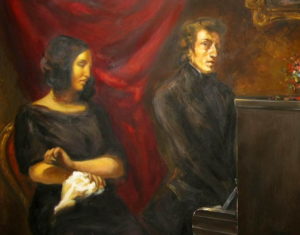

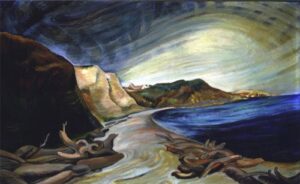
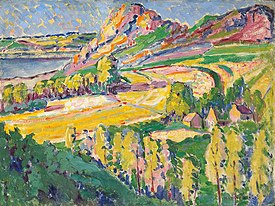




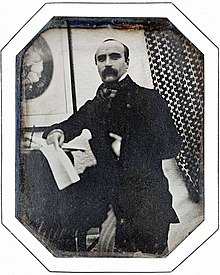


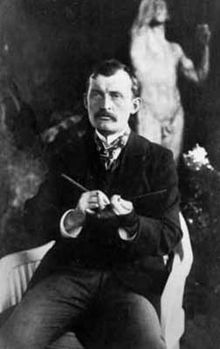




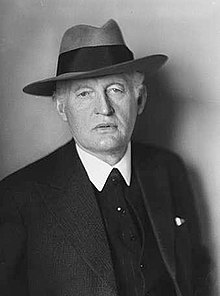


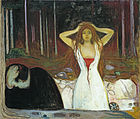







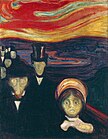








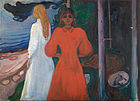


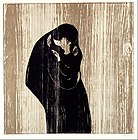












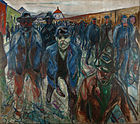








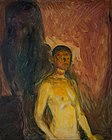


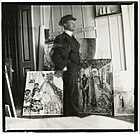
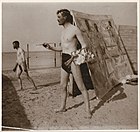




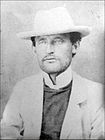


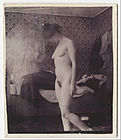
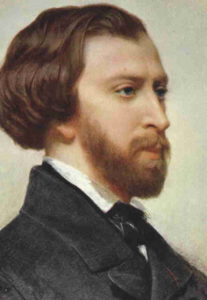 Today is the birthday of Alfred de Musset (Alfred Louis Charles de Musset-Pathay, Paris 11 December 1810 – 2 May 1857 Paris); dramatist, poet, and novelist. Along with his poetry, he is known for writing the autobiographical novel La Confession d’un enfant du siècle (The Confession of a Child of the Century).
Today is the birthday of Alfred de Musset (Alfred Louis Charles de Musset-Pathay, Paris 11 December 1810 – 2 May 1857 Paris); dramatist, poet, and novelist. Along with his poetry, he is known for writing the autobiographical novel La Confession d’un enfant du siècle (The Confession of a Child of the Century).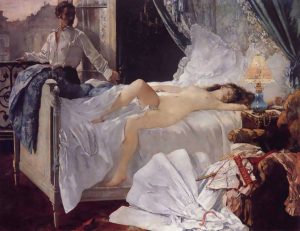
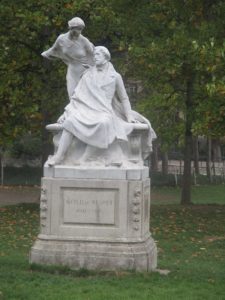
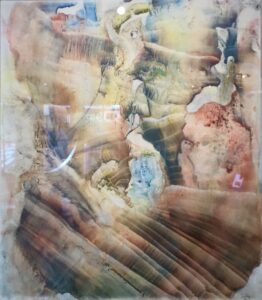
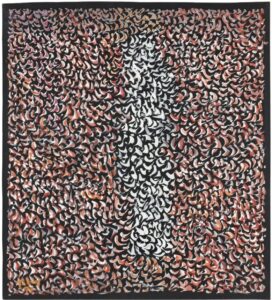
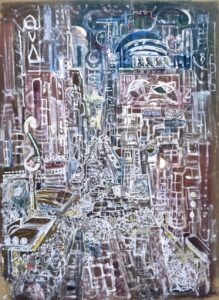
 And today is the birthday of James “Jim” Harrison (Grayling, Michigan; December 11, 1937 – March 26, 2016); writer known for his poetry, fiction, reviews, essays about the outdoors, and writings about food. Perhaps best known for his 1979 novella Legends of the Fall. He has been called “a force of nature”, and his work has been compared to that of William Faulkner and Ernest Hemingway. Harrison’s characters tend to be rural by birth and to have retained some qualities of their agrarian pioneer heritage.
And today is the birthday of James “Jim” Harrison (Grayling, Michigan; December 11, 1937 – March 26, 2016); writer known for his poetry, fiction, reviews, essays about the outdoors, and writings about food. Perhaps best known for his 1979 novella Legends of the Fall. He has been called “a force of nature”, and his work has been compared to that of William Faulkner and Ernest Hemingway. Harrison’s characters tend to be rural by birth and to have retained some qualities of their agrarian pioneer heritage.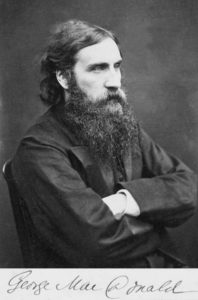 Today is the birthday of author, poet and Christian minister, George MacDonald (10 December 1824 – 18 September 1905). He wrote the fantasy novel Phantastes: A Faerie Romance for Men and Women (1858). I found an untitled poem/song in Chapter 19. I thought it POD worthy and I gave it a title, voilà –
Today is the birthday of author, poet and Christian minister, George MacDonald (10 December 1824 – 18 September 1905). He wrote the fantasy novel Phantastes: A Faerie Romance for Men and Women (1858). I found an untitled poem/song in Chapter 19. I thought it POD worthy and I gave it a title, voilà –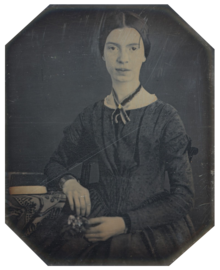
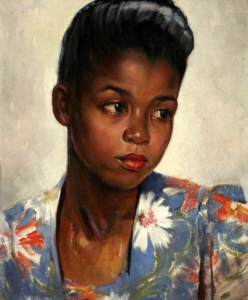
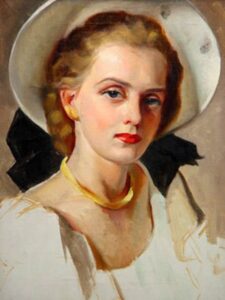
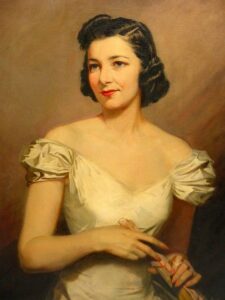
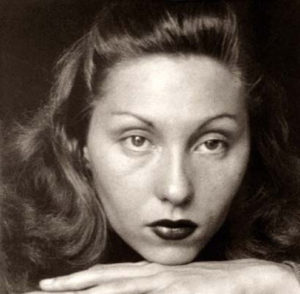 And today is the birthday of Clarice Lispector (Chaya Lispector in Chechelnyk, Podolia, a shtetl in what is today Ukraine; December 10, 1920 – December 9, 1977 Rio de Janeiro); writer acclaimed internationally for her innovative novels and short stories. Her family moved to Brazil when she was an infant, amidst the disasters engulfing her native land following the First World War.
And today is the birthday of Clarice Lispector (Chaya Lispector in Chechelnyk, Podolia, a shtetl in what is today Ukraine; December 10, 1920 – December 9, 1977 Rio de Janeiro); writer acclaimed internationally for her innovative novels and short stories. Her family moved to Brazil when she was an infant, amidst the disasters engulfing her native land following the First World War.
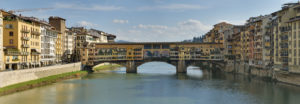

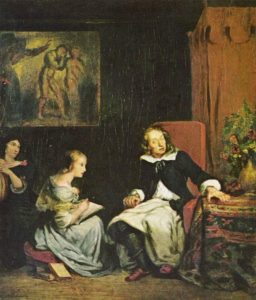 Paradise Lost (1667)
Paradise Lost (1667)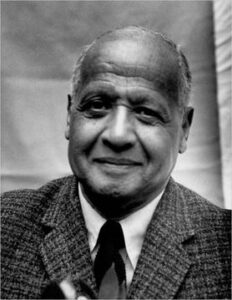 And today is the birthday of Roy DeCarava (Roy Rudolph DeCarava; Harlem; December 9, 1919 – October 27, 2009 New York City) artist and photographer. DeCarava received early critical acclaim for his photography, initially engaging and imaging the lives of African Americans and jazz musicians in the communities where he lived and worked. Over a career that spanned nearly six decades, DeCarava came to be known as a founder in the field of black and white fine art photography, advocating for an approach to the medium based on the core value of an individual, subjective creative sensibility, which was separate and distinct from the “social documentary” style of many predecessors.
And today is the birthday of Roy DeCarava (Roy Rudolph DeCarava; Harlem; December 9, 1919 – October 27, 2009 New York City) artist and photographer. DeCarava received early critical acclaim for his photography, initially engaging and imaging the lives of African Americans and jazz musicians in the communities where he lived and worked. Over a career that spanned nearly six decades, DeCarava came to be known as a founder in the field of black and white fine art photography, advocating for an approach to the medium based on the core value of an individual, subjective creative sensibility, which was separate and distinct from the “social documentary” style of many predecessors.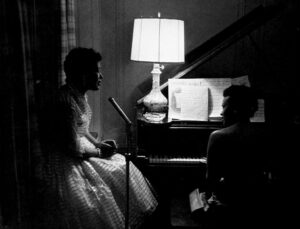
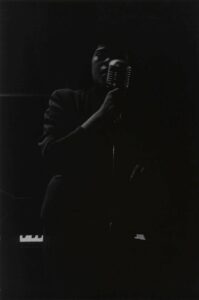
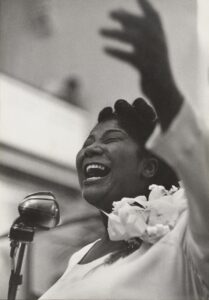
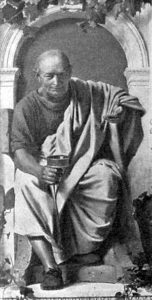 Today is the birthday of Horace (Quintus Horatius Flaccus; Venusia, December 8, 65 BC – November 27, 8 BC Rome); Roman lyric poet during the time of Augustus (also known as Octavian). The rhetorician Quintilian regarded his Odes as just about the only Latin lyrics worth reading. Horace also crafted elegant hexameter verses (Satires and Epistles) and caustic iambic poetry (Epodes).
Today is the birthday of Horace (Quintus Horatius Flaccus; Venusia, December 8, 65 BC – November 27, 8 BC Rome); Roman lyric poet during the time of Augustus (also known as Octavian). The rhetorician Quintilian regarded his Odes as just about the only Latin lyrics worth reading. Horace also crafted elegant hexameter verses (Satires and Epistles) and caustic iambic poetry (Epodes).
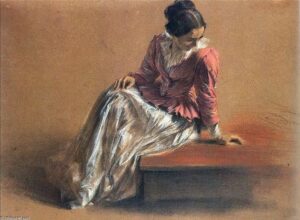
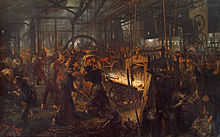



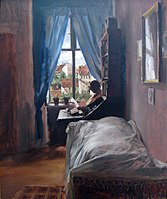
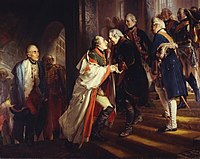



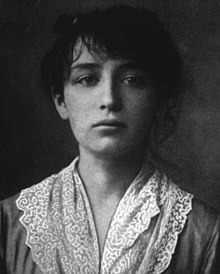
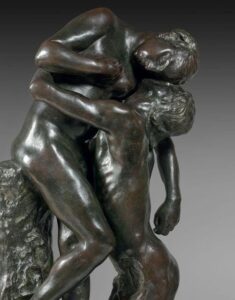
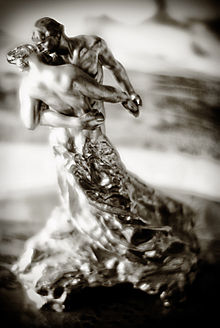





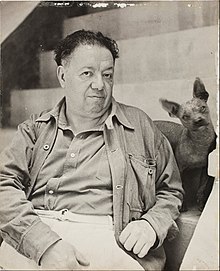
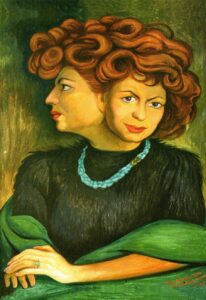

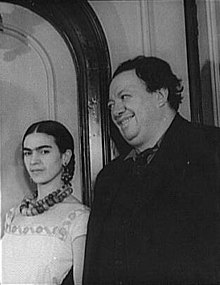


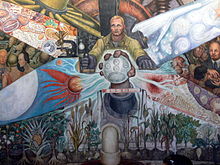









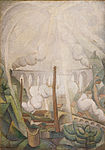










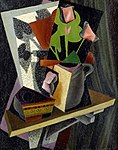




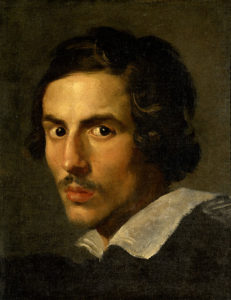 Today is the birthday of Gian Lorenzo Bernini (also Gianlorenzo or Giovanni Lorenzo; Naples; 7 December 1598 – 28 November 1680; Rome); painter, sculptor and architect.
Today is the birthday of Gian Lorenzo Bernini (also Gianlorenzo or Giovanni Lorenzo; Naples; 7 December 1598 – 28 November 1680; Rome); painter, sculptor and architect.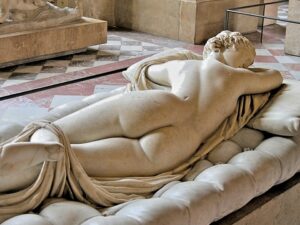



























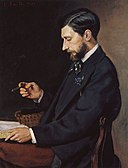
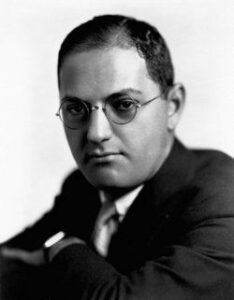 Today is the birthday of Ira Gershwin (New York City; December 6, 1896 – August 17, 1983 Beverly Hills); lyricist who collaborated with his younger brother, composer George Gershwin, to create some of the most memorable songs of the 20th century. With George he wrote more than a dozen Broadway shows, featuring songs such as “I Got Rhythm”, “Embraceable You”, “The Man I Love”, and “Someone to Watch Over Me”. He was also responsible, along with DuBose Heyward, for the libretto to George’s opera Porgy and Bess. His mastery of songwriting continued after the early death of George. He wrote additional hit songs with composers Jerome Kern (“Long Ago (and Far Away)”), Kurt Weill and Harold Arlen. His critically acclaimed book Lyrics on Several Occasions of 1959, an amalgam of autobiography and annotated anthology, is an important source for studying the art of the lyricist in the golden age of American popular song.
Today is the birthday of Ira Gershwin (New York City; December 6, 1896 – August 17, 1983 Beverly Hills); lyricist who collaborated with his younger brother, composer George Gershwin, to create some of the most memorable songs of the 20th century. With George he wrote more than a dozen Broadway shows, featuring songs such as “I Got Rhythm”, “Embraceable You”, “The Man I Love”, and “Someone to Watch Over Me”. He was also responsible, along with DuBose Heyward, for the libretto to George’s opera Porgy and Bess. His mastery of songwriting continued after the early death of George. He wrote additional hit songs with composers Jerome Kern (“Long Ago (and Far Away)”), Kurt Weill and Harold Arlen. His critically acclaimed book Lyrics on Several Occasions of 1959, an amalgam of autobiography and annotated anthology, is an important source for studying the art of the lyricist in the golden age of American popular song.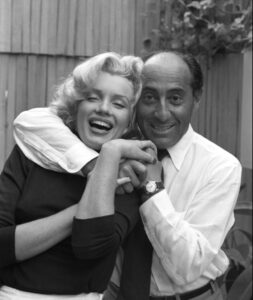 Today is the birthday of Alfred Eisenstaedt (Dirschau (Tczew) in West Prussia, Imperial Germany; December 6, 1898 – August 23, 1995 Oak Bluffs, Massachusetts); photographer and photojournalist. He began his career in Germany prior to World War II but achieved prominence as a staff photographer for Life magazine after moving to the U.S. Life featured more than 90 of his pictures on its covers, and more than 2,500 of his photo stories were published.
Today is the birthday of Alfred Eisenstaedt (Dirschau (Tczew) in West Prussia, Imperial Germany; December 6, 1898 – August 23, 1995 Oak Bluffs, Massachusetts); photographer and photojournalist. He began his career in Germany prior to World War II but achieved prominence as a staff photographer for Life magazine after moving to the U.S. Life featured more than 90 of his pictures on its covers, and more than 2,500 of his photo stories were published.



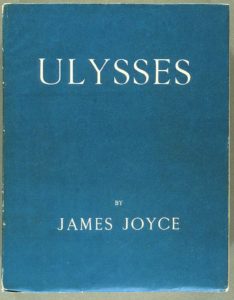 On this day in 1933 – U.S. federal judge John M. Woolsey rules that James Joyce’s novel Ulysses is not obscene. Ulysses is a modernist novel by Irish writer James Joyce. It was first serialised in parts in the American journal The Little Review from March 1918 to December 1920, and then published in its entirety by Sylvia Beach in February 1922, in Paris. In my opinion, it is one of the most important works of modernist literature. Ulysses chronicles the meandering appointments and encounters of Leopold Bloom in Dublin in the course of an ordinary day, 16 June 1904. Ulysses is the Latinised name of Odysseus, the hero of Homer’s epic poem Odyssey, and the novel establishes a series of parallels between the poem and the novel, with structural correspondences between the characters and experiences of Leopold Bloom and Odysseus, Molly Bloom and Penelope, and Stephen Dedalus and Telemachus, in addition to events and themes of the early twentieth century context of modernism, Dublin, and Ireland’s relationship to Britain. Ulysses is approximately 265,000 words in length and is divided into eighteen episodes. Since publication, the book has attracted controversy and scrutiny, including the afore mentioned obscenity trial, due to its stream-of-consciousness technique, careful structuring, and experimental prose full of puns, parodies, and allusions, as well as its rich characterisation and broad humour. Joyce fans worldwide now celebrate 16 June as Bloomsday.
On this day in 1933 – U.S. federal judge John M. Woolsey rules that James Joyce’s novel Ulysses is not obscene. Ulysses is a modernist novel by Irish writer James Joyce. It was first serialised in parts in the American journal The Little Review from March 1918 to December 1920, and then published in its entirety by Sylvia Beach in February 1922, in Paris. In my opinion, it is one of the most important works of modernist literature. Ulysses chronicles the meandering appointments and encounters of Leopold Bloom in Dublin in the course of an ordinary day, 16 June 1904. Ulysses is the Latinised name of Odysseus, the hero of Homer’s epic poem Odyssey, and the novel establishes a series of parallels between the poem and the novel, with structural correspondences between the characters and experiences of Leopold Bloom and Odysseus, Molly Bloom and Penelope, and Stephen Dedalus and Telemachus, in addition to events and themes of the early twentieth century context of modernism, Dublin, and Ireland’s relationship to Britain. Ulysses is approximately 265,000 words in length and is divided into eighteen episodes. Since publication, the book has attracted controversy and scrutiny, including the afore mentioned obscenity trial, due to its stream-of-consciousness technique, careful structuring, and experimental prose full of puns, parodies, and allusions, as well as its rich characterisation and broad humour. Joyce fans worldwide now celebrate 16 June as Bloomsday.

